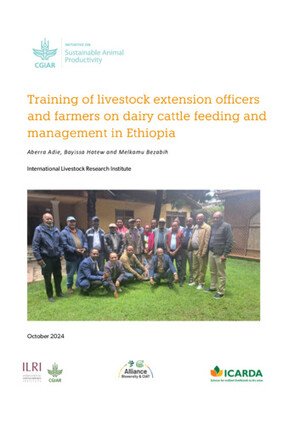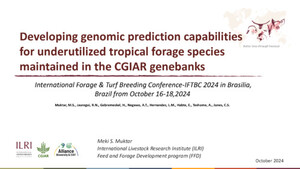
Impact evaluation on the effectiveness of the FEAST tool in changing knowledge, attitudes and behaviour in the development of livestock feed interventions
Abstract
Livestock production is a significant source of livelihood among small scale farmers and pastoralists in Kenya. Livestock productivity is however challenged by inadequate quality and quantity of feed. The solutions offered by development agencies fail to integrate farmers’ opinion and to address the underlying context issues of limited access to water, land, knowledge, capital, inputs and labour. ILRI and CIAT have therefore developed the Feed Assessment Tool (FEAST) which addresses feed issues and context issues using participatory rural appraisal.
FEAST has been used widely and is currently being used in dairy and livestock value chains of the AVCD project in North Eastern, Eastern, Coastal and Western Kenya. A total of 58 of the 61 FEAST facilitators trained completed the before and after studies. The studies were used to assess impact of training on knowledge, attitude and behavior of the respondents in development of context specific feed interventions rather than limited one-fit technologies.
Significant change was achieved in knowledge with a p value of 0.001, significant at 95% confidence level and medium effect size of 0.57. There was no significant change in all the nine aspects assessed for attitude and behavior change indicating that respondents were already knowledgeable in the agricultural systems and participatory development of context specific interventions.
Citation
Kinyua, C. and Lukuyu, B. 2019. Impact evaluation on the effectiveness of the FEAST tool in changing knowledge, attitudes and behaviour in the development of livestock feed interventions. ILRI Research Report 53. Nairobi, Kenya: ILRI.









